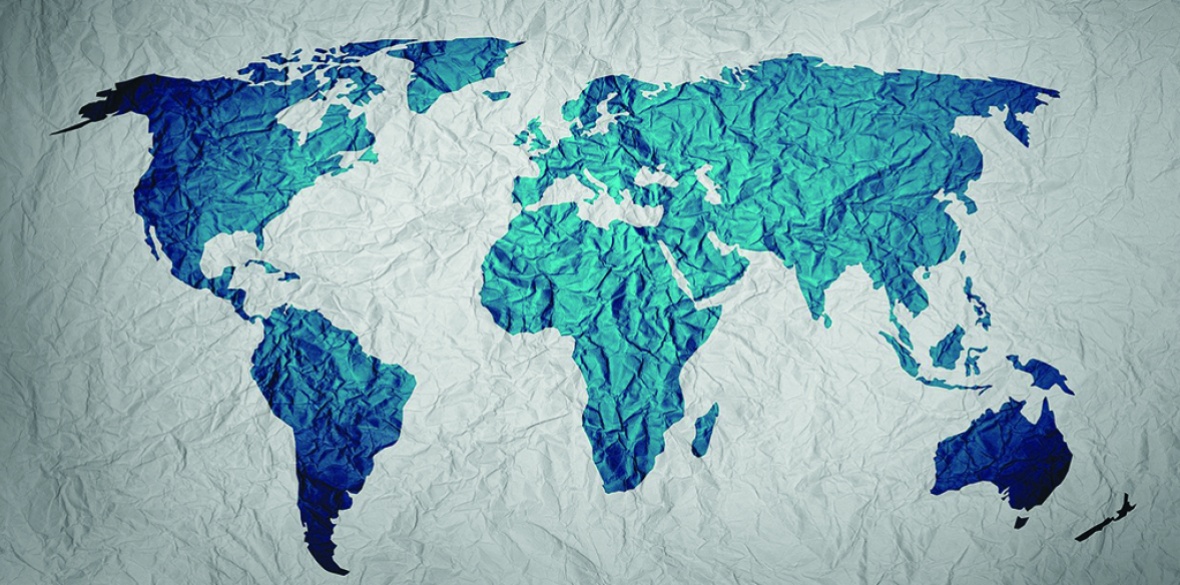This is the last article you can read this month
You can read more article this month
You can read more articles this month
Sorry your limit is up for this month
Reset on:
Please help support the Morning Star by subscribing here
IT IS a cruel irony that, at a time when internationalism is most critical, we are stuck with a complete lack of global leadership.
The coronavirus crisis requires an international response that prioritises people over profit and rejects authoritarian nationalism wherever it raises its ugly head.
Yet the profound lack of international co-operation at a political level, encapsulated by the blustering incompetence of Donald Trump, Jair Bolsonaro and Boris Johnson, has shown how insular and vulnerable the world really is.
This is not a time for self-interest or selfishness but for stronger global co-operation and organisation.
Britain has a crucial role to play in this new internationalism. I believe, for instance, that we must consider the impact of Britain’s colonial legacy on modern-day global insecurity and be ambitious about changing the unjust dynamics of global debt.
The Jubilee Debt Campaign has said that it is vital to alleviate the mounting financial pressure on poorer countries by cancelling their debt payments this year.
This was after it found that more than 60 countries are spending more on paying their creditors than they are on their population’s health.
Among the 121 low and middle-income countries for which 2019 data was available, an average of 10.7 per cent of government revenue was spent on public health systems, compared with 12.2 per cent on external debt payments.
Many African, Latin American and some Middle Eastern countries commonly pay more than 10 per cent interest on their borrowings while richer nations are paying just 1 per cent or less.
This is a direct consequence of the uneven power dynamics forged through centuries of violent, extractive colonialism and imperialism.
As official imperialism ended in the second half of the 20th century, Western powers ensured the continued subjugation of former colonies with a programme of enforced, informal neoimperialism, in which global debt — administered through the International Monetary Fund and the World Bank — plays a central part.
As Thomas Sankara, the assassinated radical president of Burkina Faso, eloquently put it: “Debt’s origins come from colonialism’s origins. Those who lend us money are those who had colonised us before.
“Under its current form … debt is a cleverly managed reconquest of Africa, aiming at subjugating its growth and development through foreign rules.”
Britain and other Western countries have a moral duty to ensure that economically poorer countries do not disproportionately suffer from the coronavirus due to the unjust hindrance of global debt.
Now is the time for Britain to seriously consider calling for an end to this historical unfairness.
For this and many other reasons, I was proud to join more than 300 lawmakers from around the world in recently calling on political leaders and global financial organisations to fully cancel poor nations’ debt as they work to combat the coronavirus crisis.
The letter was initiated by US senators Ilhan Omar and Bernie Sanders.
We must also stand with all those fighting to protect vulnerable people across the world, especially indigenous communities.
In Brazil, for instance, despite widespread international condemnation, far-right President Jair Bolsonaro has encouraged the deforestation of the Amazon and dismantled government agencies that are supposed to protect both the environment and indigenous peoples.
For progressives, it is vital that we stand in solidarity with indigenous peoples in Brazil and across the world, for whom highly infectious diseases such as the coronavirus pose a devastating threat.
As we rethink our international settlement during the coronavirus pandemic, it is also crucial we challenge the intolerable suffering caused by global conflicts.
I have led a campaign in Parliament for Britain to honour its commitment to a genuine global ceasefire to combat the spread of Covid-19.
Although Britain has backed the ceasefire proposal, called for by UN secretary-general Antonio Guterres, there is no evidence of any action being taken on the ground, with the RAF continuing to fly troops around the world.
With the pandemic heightening the suffering of warzones, as socialists we must step up our demand to end British complicity in wars such as the catastrophic Yemeni conflict.
I also believe that, as we rebuild from coronavirus, the global community must prioritise the just transition away from fossil fuels and towards renewable energy as soon as scientifically possible.
Without immediate government intervention, the urgent action required to preserve a habitable planet will be too slow.
This will cause unimaginable disruption and could cost millions of lives, most immediately and sharply among those countries which have historically contributed the least to causing the climate crisis.
While governments rightly focus on tackling the coronavirus pandemic, the wellbeing of the entire planet relies on us also taking this opportunity to mitigate the existential threat of climate change.
From the coronavirus pandemic to the climate emergency, the global community is facing increasingly common enemies.
Now is the time for a new internationalism, which prioritises global justice and collaboration while ensuring that human rights, international law and climate justice are at the heart of our international policies.
After this crisis, we can no longer live in a society defined by extreme global, racial and class inequality.
It is up to all of us — politicians, trade unionists and activists — who are committed to building a fairer world, to stand united so that we can build a global order that works for all of us, not just a privileged few.
Claudia Webbe MP is the member of Parliament for Leicester East. You can follow her at www.facebook.com/claudiaforLE and twitter.com/ClaudiaWebbe.












